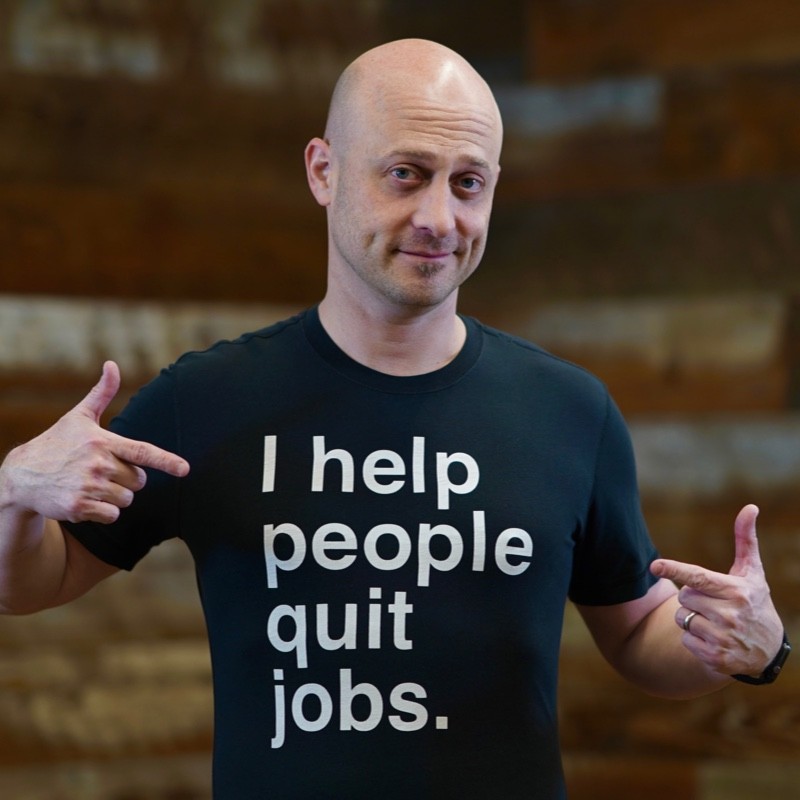Texas as the Up-and-Coming Startup Hub with Josh Baer
- 0.5
- 1
- 1.25
- 1.5
- 1.75
- 2
Intro: Welcome to the Daily Bolster. Each day we welcome transformational executives to share their real- world experiences and practical advice about scaling yourself, your team, and your business.
Matt Blumberg: Welcome to The Daily Bolster. I'm Matt Blumberg, co- founder and CEO of Bolster. And I am here today with my friend Josh Baer. Josh is the founder of Capital Factory, which is in Austin. He is the most active early- stage investor in the State of Texas. And he is famous for helping people quit their jobs to become entrepreneurs. Josh, great to see you.
Josh Baer: Hey, Matt. It's great to be here. Great to see you too.
Matt Blumberg: All right. So, my question for you, I want to keep this on brand for you is, top three reasons that Texas is going to be a dominant force in the startup ecosystem for years to come. It is not the go- to for people. People think the Valley maybe in a pinch, they think New York, maybe they're in some other places, but why is Texas going to be dominant?
Josh Baer: Yeah. It's funny, that question is something I've been talking about for a long time, and it's funny how that conversation has changed particularly over the past five years or so. Because when I first started talking about it 10 or 20 years ago, it was really kind of like, " Oh, that's cute, Austin. Texas. Yeah, sure. Someday, maybe." And I think we really crossed the chasm, particularly over COVID as it accelerated so many different things. It accelerated Austin and Texas really booming and all these people moving here, and it really crossed this cusp of being kind of the top of the up- and- coming cities, the top of the tier two cities to the bottom of the tier one cities, which I'll take. It's like we're now playing with the big boys. And what that means is any big corporate relocation, any big, interesting move, any kind of big thing going on in the country, they're looking at Texas and they're looking at Austin in particular saying, " Is that a place where I should go do that?" And so, that's the first thing that really has changed over the past. I'd say really accelerated by COVID over the past five years. The second thing about that, what one of the things that really drives that is that it really comes down to where do people want to live? Where do people want to grow their families and grow their businesses? Where do they choose to be? Because during COVID, it created this time when suddenly anybody could live anywhere. And the funny thing was everybody didn't evenly distribute across the country. Everybody didn't live everywhere. Actually, everybody moved to a small number of places they'd all been thinking about moving to for a really long time. And Austin, and Dallas, and Houston, and San Antonio, all many cities in Texas were big winners in that migration where people that had family here had been thinking about moving here. Finally, had no good reason not to. And I'll move here over the past few years. And so, people being that big driver. And then the last thing I'll mention and something that certainly something that we've really experienced growth from is the move for significant industry around robotics and health and other areas, and government funding for those through the military, through other government organizations that have really focused on Texas. A lot of those groups, they went to Silicon Valley. And Silicon Valley really wasn't very nice to them, wasn't very receptive to helping our government and others to solve their big problems. And that's when Texas has more military bases than anywhere else in the country. It's got tons of veterans. They really got a warm reception from a lot of patriots who really want to be part of the solution and want to help. And so, those are three things that I think will really help drive it.
Matt Blumberg: Yeah. You know it's interesting. Your answer has shades of Brad Feld startup community's thesis in it, but it also has shades of what made Silicon Valley, Silicon Valley. If you wind the clock back to the 1960s.
Josh Baer: Oh, yeah. inaudible, right? That was driven by the internet in DARPA and a whole bunch of other things that came out of the government as well, but that came in and out of fashion over time.
Matt Blumberg: Yeah. All right. Well, it sounds like they're fashionable in the Lone Star State. So...
Josh Baer: It is. And I'll tell you, one of the things Austin and used to be known for is affordability. And I will say that that's something we've lost a lot of. It's not nearly the affordable place it used to be. Those of us who bought property 15, 20 years ago, we all made a lot. We all feel good about it. Our property values have all gone up a lot, and it's not quite the affordable place that it used to be, but Texas still is. Texas is still really big, and Texas has a lot of space. And Austin still has a lot of other benefits that seem to be making it a good win in the balance.
Matt Blumberg: All right. Josh Baer from Capital Factory. Thanks for being here.
DESCRIPTION
Today’s guest, Josh Baer, is the Founder & CEO of Capital Factory, which invests in early-stage companies and supports entrepreneurs in Texas. Tune in as Josh shares why he views Texas—and specifically Austin—as an up-and-coming force in the startup ecosystem.



